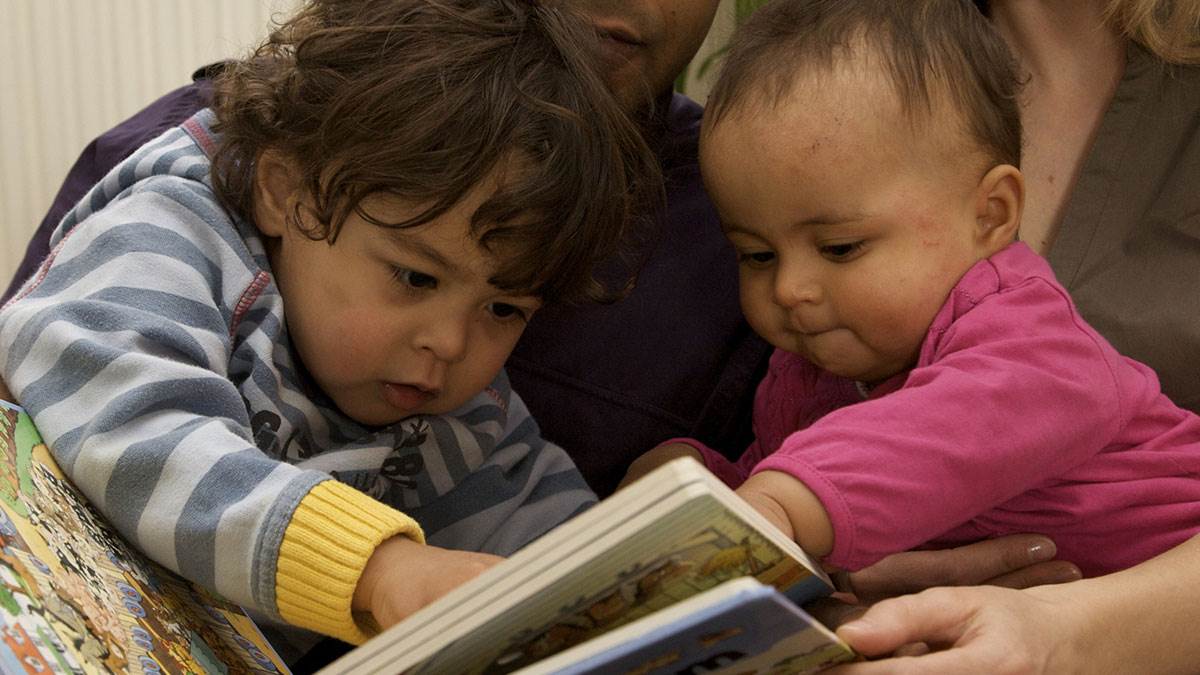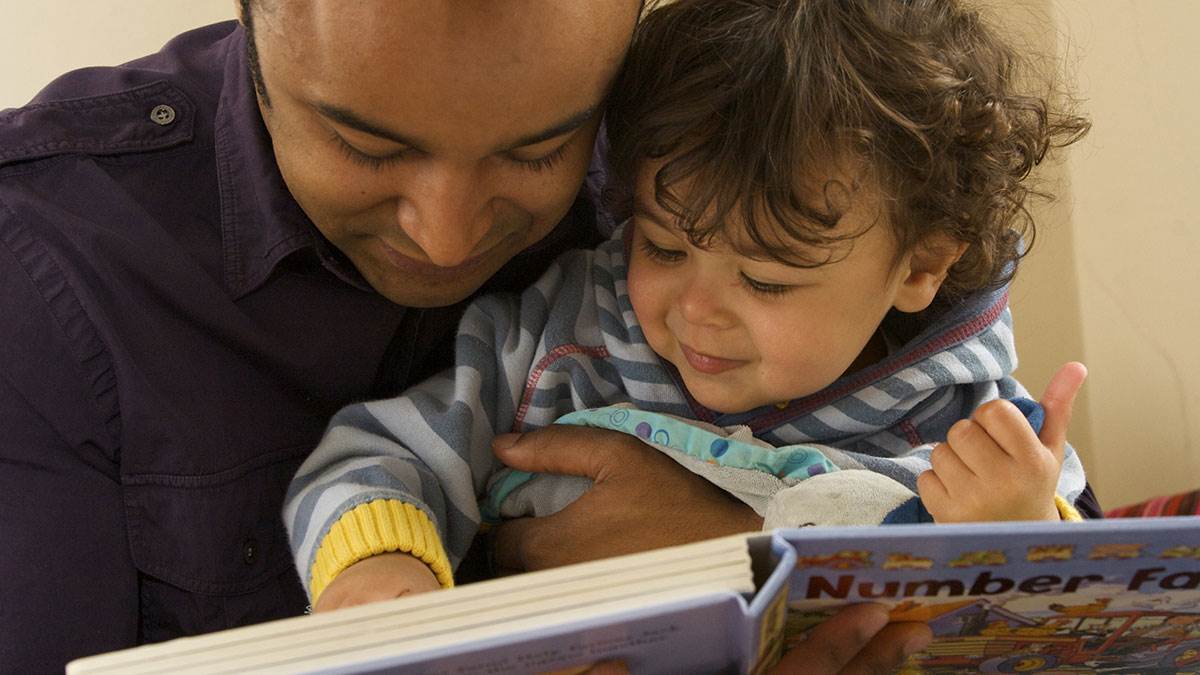What makes a good storyteller?
Published on: 10 December 2019 Author: Karen Wilkinson
Award-winning Bookstart coordinator Karen Wilkinson gives her top tips and advice to parents and carers to make sure storytime with your child is an enjoyable, fun part of the day.

The secret to storytelling...
... is to have fun!
When we share a book with our children, we're doing something very special. For those few minutes, the outside world stops as we read about elephants or pirates or aliens.
Turn off the television or anything that will distract you. Choose a book that you think you can talk about for five minutes, and which you will both enjoy. Make a cosy spot - a couple of cushions on the floor will do. Be brave and put on silly voices or animal noises - and just enjoy doing something together.
Don't be nervous about reading aloud
Most of the book sharing happens in our own homes - it's just us and our child or children. There is no one to judge or tell us we've said the wrong word or missed a page. Although if it's a book you've read before, your child might tell you!
Children love spending time with the grown-ups in their lives. They are not critical or judgemental. They just appreciate sharing that time and experience with us.
Stories and talking to your child are important
Babies love the sound of our voices and the rhythm of language. They might not understand the words themselves, but they like how our voices naturally go up and down as we speak. They babble back to us and eventually learn to say words - all because we talk to them.
Stories not only help children learn about the world and themselves, but also to learn about language and how stories and books work. For instance, they learn what a 'page' is because we say, 'Shall we turn the page?' or, 'I wonder what's on the next page?'
When we talk to children about the pictures in books, we're giving them the time and opportunity to ask questions about what they see and to make connections with the world.
Sharing books with young children is not about 'teaching them to read' - it's about helping them to discover that books are exciting and fun. It feeds their imagination (and their interests) so that when the time comes to learn to read, they are eager to read stories for themselves.

Keeping your child interested in books
The secret to engaging your child with books is to choose those that support their interests. As well as being fun and interactive, allow them to develop at their own pace. If your child likes tractors or crocodiles, then chose books with tractors or crocodiles in them. You don't have to talk about everything on every page - choose the pages that they will be interested in.
Don't worry about reading the words - tell the story from the pictures and talk together about what you see. If a picture reminds them of something they have seen or experienced, then let them talk about it. If it takes you all day to read a book because you do it a couple of pages at a time, in between all the other things your child wants to do, then that's fine - because there's no rush.
If your child really isn't enjoying the book, leave it - you don't have to finish it, just find one that they do enjoy!
Reading the same book again and again
About two-thirds of children have favourite books, and these are the stories that we are asked to read time and time again.
As adults we tend to read the same newspaper every day, listen to the same radio station in the car or watch the same television programme each week. We choose to go back to something that we enjoy.
If your child has a favourite book, it's because they enjoy it and they want it 'again, again'! It could be that the cat in the book looks like your cat or the cat that comes into your garden. It could be that the funny voice you use makes them laugh. It could be the kiss or tickle that they get on page 4. These favourite stories are helping them learn that books are fun, that literacy is fun, and that reading is something they want to do.
On the other hand, if your child doesn't have a favourite story and likes lots of different books all the time, don't panic. Continue to share lots of different types of books with them because this is what they enjoy!

Top tips for choosing appropriate books and stories
- For babies and very young children choose a book with good pictures that you can talk about for a few minutes.
- Board books and flap books are also brilliant for very young children, who often want to eat their books as well as look at them! Children love the anticipation of what's hidden beneath the flap. Talk about what you see on the page and don't worry about reading the words at this stage.
- For older children, you will have to consider what sort of books your child likes. Do they like books with animals or trains or a particular book or television character?
- Always encourage your child to choose books for themselves. Take them to your local library, where there are hundreds of children's books.
- Remember: every time you share a book with a child, you are doing something really valuable. You are helping them discover the pleasure of reading.






Add a comment